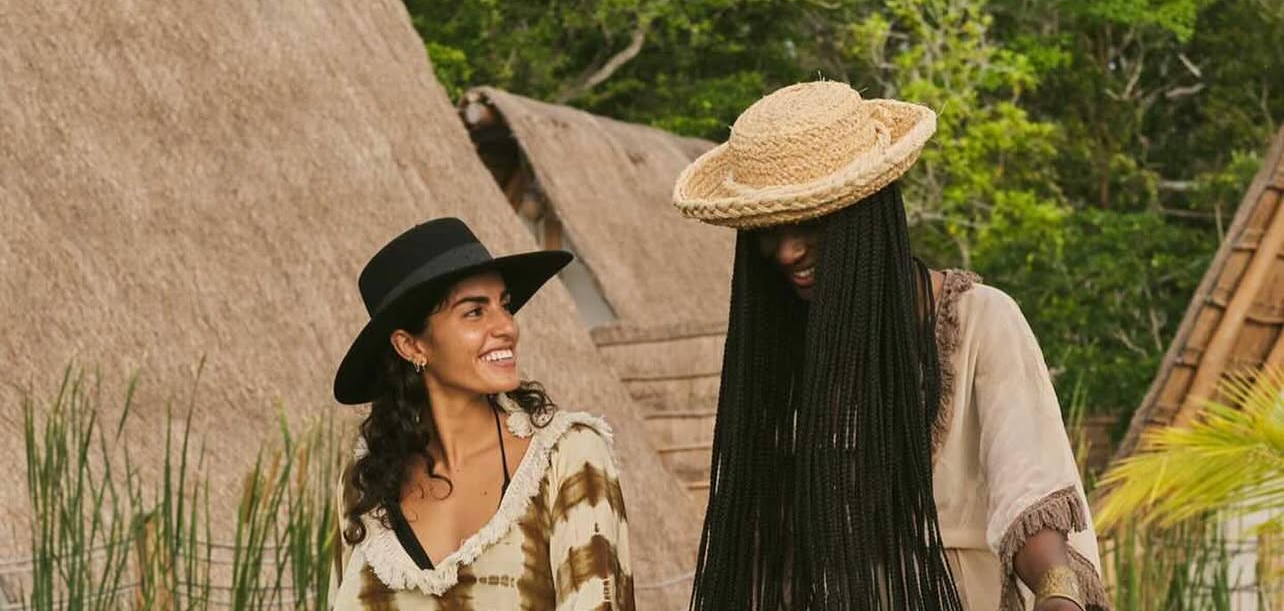In many African traditions, cloth carries memory in its very weave. Scholars of material culture, from Karin Barber to Victoria Rovine, remind us that fabric is more than textile. It is a mnemonic device, a bearer of stories, a chronicle of lives lived.
An indigo-dyed wrapper in Abeokuta recalls not only a woman’s daily labour but also a lineage of hands that stirred the dye, stamped the resist patterns, and passed the cloth down through generations. Anthropologists argue that where memory falters, cloth endures. It remembers for us.In Nigeria, adiré, akwete, and aso-oke are archives. A grandmother’s wrapper bears the softness of decades of use, holding in its folds the weddings, births, and funerals it has witnessed. The weave itself, like akwete, encodes a philosophy. Unlike words, which can be forgotten, cloth clings to skin, to rituals, to memory.
Yet cloth does not remain in the past. In Brooklyn, London, or Paris, a wax print skirt is not only a marker of cultural inheritance but also a passport, a declaration of belonging elsewhere. Designers like Kenneth Ize and Maki Oh translate these archives into global runways, turning cloth into bridges across continents. What might seem, to one eye, like a pattern or trend, is to another a fragment of home carried into exile, a wearable protest against forgetting.
This protest is not without tension as cloth, arguably, always carries politics. Whose histories are preserved, and whose are erased?Colonial expansion once positioned European silks and velvets as “luxury,” relegating African cloth to the realm of the “everyday.” Today, when fast-fashion brands borrow “African prints” without attribution, they rehearse that same erasure.
To wear akwete in Lagos is a memory. To buy a mass-produced knock-off in Europe without crediting the Igbo weavers is theft. In this sense, cloth is never neutral; it is an argument about power, authenticity, and the right to remember.
Despite this, there is a universal agreement that cloth also elevates. The indigo vats of Abeokuta echo the pigment experiments of Renaissance Florence. Aso-oke’s woven brilliance belongs in the same lineage as Japanese ikat or the Bauhaus loom. When we speak of global textile history, Nigerian cloth is not an addendum but a central chapter. Menkes might say that cloth’s memory is also innovation: not nostalgia, but a reminder that what is handmade, storied, and rooted can outlast the ephemeral churn of fashion weeks.
Together, these voices converge on one truth: cloth remembers what we forget. It remembers who we were before conquest and capitalism, before migration and modernity. It remembers the women bent over dye vats, the guilds of weavers, the marketplaces where cloth was currency and language. It remembers even when people choose amnesia — when archives burn, when tongues fall silent, when histories are written to erase. Cloth insists on continuity.
This is why Afrikstabel has taken on the intentional task of preservation. Beyond production, it seeks to honour the cultural memory encoded in Nigeria’s textiles, not merely as artefacts but as living testaments.
Through its fabrics and initiatives, Afrikstabel positions cloth as both archive and future, a medium of storytelling that refuses to die. On September 27, this vision will find expression in an exhibition titled “In the Beginning, There Was Cloth”. It will gather histories, craftspeople, and contemporary voices to affirm that Nigeria’s textiles are witnesses — memory you can touch, heritage you can wear.According to its founder, Ifebuche Madu, “We are on a revival mission to ensure our identity is preserved. One of our goals for this exhibition is to provide insights to Nigerian textile legacies, and this will serve as the first of the series.”
To wear it is to participate in this remembering. To study it is to honour the archive. To dismiss it is to risk forgetting who we are.

